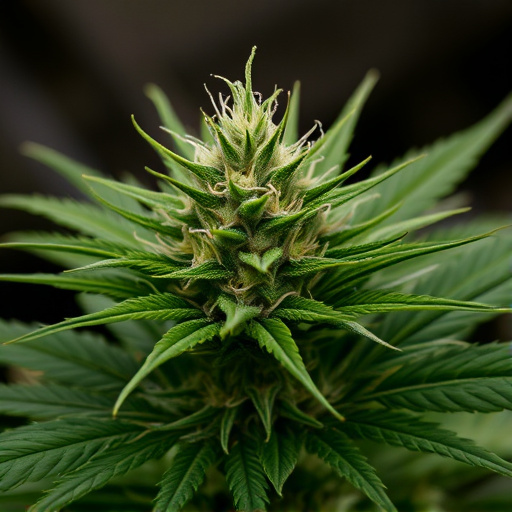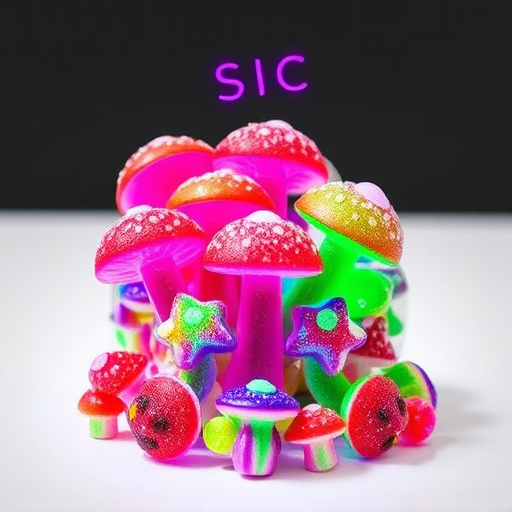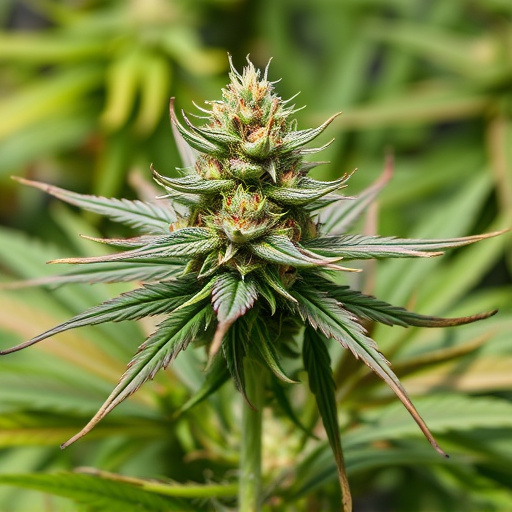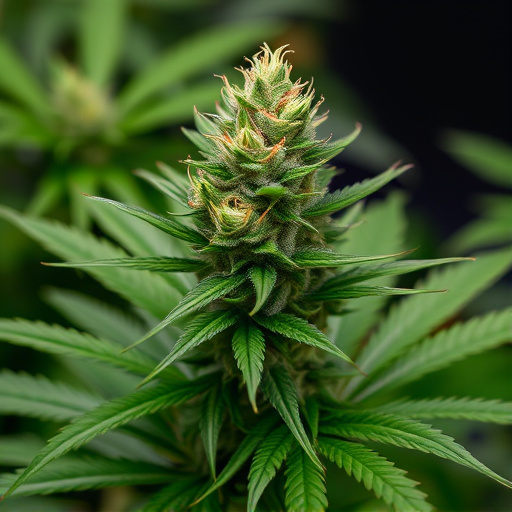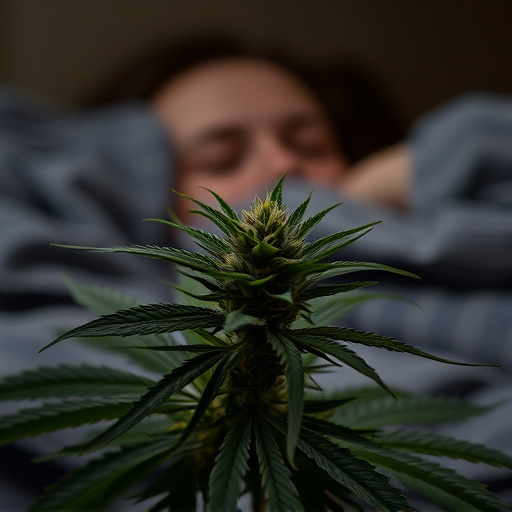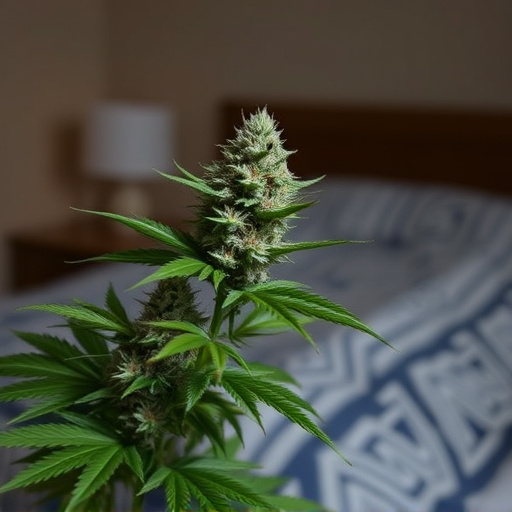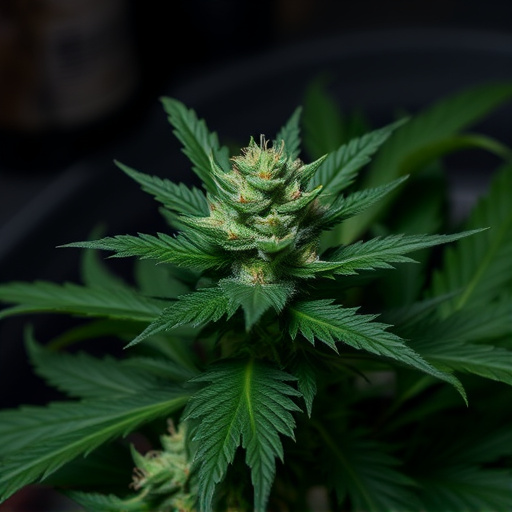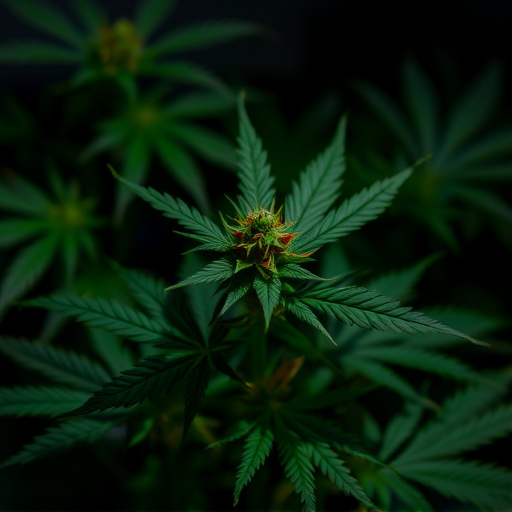High-THC cannabis strains, popular for their sleep-promoting properties, carry significant risks when used to manage insomnia. With potent effects that can include heightened sensory perception, increased heart rate, and emotional intensification, these strains require caution due to potential side effects like anxiety, paranoia, memory impairment, and cognitive dysfunction. Regular use leads to tolerance development, necessitating moderation and exploring alternative treatments or low-THC options for those relying on cannabis to manage insomnia. Understanding the balance between sleep improvement and cognitive function is crucial.
“Unraveling the complexities of high-THC strains and their profound impact on the human body and mind is essential in today’s evolving landscape. With cannabis gaining mainstream attention, understanding the science behind potent THC levels becomes crucial. This article explores how these powerful strains affect both physiological and cognitive functions, delving into short-term and long-term effects on the body while shedding light on their unique influence on sleep, relaxation, and mental states. Additionally, we examine cannabis strains specifically tailored for insomnia.”
- Understanding High-THC Strains: The Science Behind the Potency
- Impact on the Body: Short-Term and Long-Term Effects
- THC's Influence on the Mind: Sleep, Relaxation, and Beyond
Understanding High-THC Strains: The Science Behind the Potency

Cannabis strains with high THC levels, often sought after by users looking for recreational or medicinal benefits, have a profound impact on both the body and mind due to their potent effects. Understanding how these high-THC strains work is crucial when considering their use, especially in addressing conditions like insomnia. The science behind their potency lies in tetrahydrocannabinol (THC), one of over 100 cannabinoids found in cannabis plants. THC binds to cannabinoid receptors in the brain and body, triggering various physiological responses.
High-THC strains typically have elevated levels of this compound, usually exceeding 20% in concentration. This heightened THC content intensifies the plant’s effects, offering users a more robust experience. However, it also means that individuals must exercise caution, as excessive THC can lead to anxiety, paranoia, and other adverse reactions, especially for those new to cannabis or with pre-existing mental health conditions. When considering cannabis strains for insomnia, balancing potency and potential side effects is essential to ensure a therapeutic rather than disruptive experience.
Impact on the Body: Short-Term and Long-Term Effects
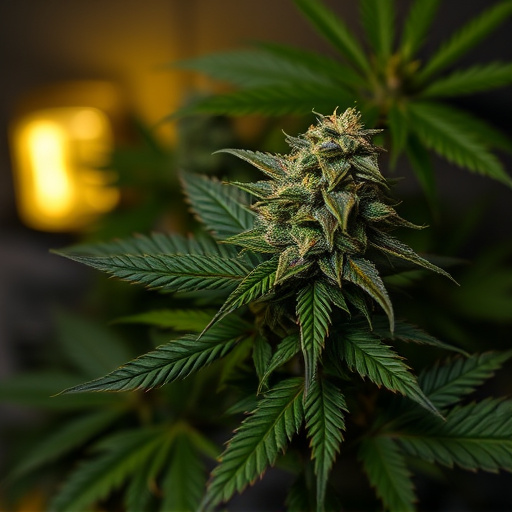
Cannabis strains high in THC, particularly those marketed as treatments for insomnia, can significantly impact the body both in the short and long term. In the immediate aftermath of consumption, users may experience heightened sensory perception, increased heart rate, and heightened emotion. These effects can be beneficial for some in managing anxiety or pain, but they also carry risks, especially for individuals with pre-existing conditions like heart disease.
Over time, regular use of high-THC strains can lead to tolerance buildup, necessitating higher doses to achieve the same effects. This can exacerbate health issues and make it harder to control usage. Long-term users may face adverse effects such as memory impairment, cognitive dysfunction, and increased anxiety or paranoia. For those relying on cannabis for insomnia relief, these risks underscore the importance of moderation and seeking professional guidance regarding alternative treatments, like low-THC strains or therapy, if needed.
THC's Influence on the Mind: Sleep, Relaxation, and Beyond

THC, the primary psychoactive compound in cannabis, significantly influences the mind and cognition. Beyond inducing feelings of euphoria or heightened sensory perception, THC has been linked to various mental effects, particularly relevant for those seeking relief from insomnia and sleep disorders. High-THC strains are often explored as potential remedies for insomnia due to their sedative properties. The compound interacts with the endocannabinoid system in the brain, which plays a role in regulating sleep, mood, and memory. This interaction can lead to enhanced relaxation, making it easier for individuals to fall asleep and achieve deeper rest.
However, THC’s impact extends beyond sleep. It may also affect cognitive functions such as concentration and memory, especially at higher doses or when consumed during the day. For individuals using cannabis strains for insomnia, understanding these effects is crucial. While THC can promote relaxation and improve sleep quality, it’s essential to consider timing and dosage to avoid potential cognitive impairments that might impact daily life and productivity.
High-THC strains, while potent in alleviating certain symptoms, necessitate careful consideration due to their impact on both body and mind. The scientific understanding of these strains highlights their potential benefits, such as promoting relaxation and sleep, but also underscores the importance of responsible use. For individuals seeking cannabis strains for insomnia or other conditions, knowledge about the short-term and long-term effects is crucial. By understanding THC’s influence, users can make informed decisions, ensuring a safe and effective experience tailored to their needs.



